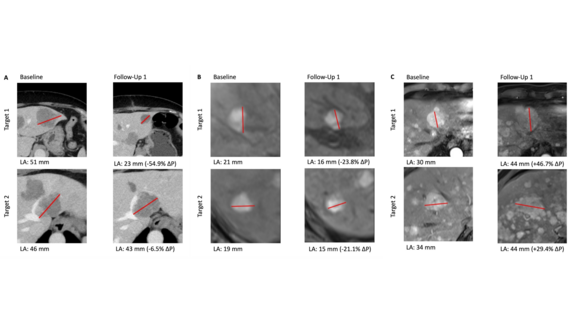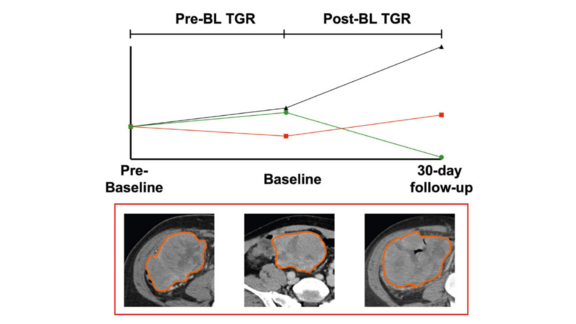A recent retrospective study led by Dr. Marilyn J. Siegel and her team at the Washington University School of Medicine in St. Louis has shed light on a critical issue in cancer care: routine clinical reads are more prone to overdiagnosing progressive disease when compared to RECIST 1.1 interpretations. This discrepancy holds significant implications, potentially leading to the premature discontinuation of effective treatments for cancer clinical trial participants and patients under standard care.
In this study, mint Lesion software was utilized for the criteria-based reads, determining overall response assessments according to RECIST 1.1 criteria, and generating structured reports for the clinical trial's principal investigator.
To learn more about the study's insights into the discrepant assessments and the suggested steps for mitigating this issue, click here.

Study Discovers Overdiagnosis of Progressive Cancer in Routine Clinical Evaluations
Related Resources
Related Resources

University Hospital Tuebingen: Study compares the Efficacy of SIRT and CS-PHP in Uveal Melanoma with Hepatic Metastasis
A study[1] conducted by researchers at University Hospital Tuebingen retrospectively compared the efficacy of two liver-targeted therapies,…

ESOI-EORTC Workshop on Imaging in Assessing Response to Cancer Therapy - A Participant's Perspective
Following the conclusion of the ESOI-EORTC Workshop on Imaging in Assessing Response to Cancer Therapy in Munich, we were keen to gather feedback…

Study with mint Lesion™ Uncovers the Impact of Tumor Growth Rate in Predicting the Efficacy of CAR-T-cell Therapy in Lymphoma Patients
A recent study conducted by Dr. med. Michael Winkelmann and his colleagues at the LMU Klinikum München explored the association between TGR dynamics…